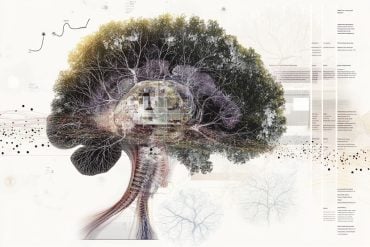Summary: A study suggests that recalling past alcohol experiences before drinking can slow down consumption, indicating a potential strategy to reduce alcohol intake. In the study, women who remembered a previous drinking episode took longer to consume an alcoholic beverage, possibly due to reduced motivation to drink.
This approach, along with strong health warnings, may offer new methods to curb excessive alcohol consumption. Further research is needed to explore this effect in males.
Key Facts:
- Recalling past drinking experiences can slow down alcohol consumption.
- Women who remembered drinking took longer to finish their drinks.
- Strong health warnings on alcohol also reduced drinking speed.
Source: University of Portsmouth
Researchers exploring the role memory plays in alcohol consumption believe it could help people drink less booze.
Previous research has found people don’t eat as much food when they are reminded of an earlier meal just before tucking in. The latest study, led by the University of Portsmouth, wanted to further investigate the relationship between memory and consumption, but with alcohol instead.

The team carried out a study involving 50 women aged 18 to 46-years-old who were randomly split into two groups: The first group were asked to recall a recent alcohol experience in detail, and the second had to recall a car journey, as a control. Participants were then asked to consume a vodka-based drink, at a rate that felt comfortable to them.
Participants watched a mood-neutral program while drinking to provide a more naturalistic environment and distract them from any suspicion that their rate of consumption was being recorded.
The findings revealed individuals asked to recall a previous drinking episode took longer to consume the alcoholic beverage, which suggests a lower motivation for alcohol.
Dr Lorenzo Stafford, a multisensory researcher in the School of Psychology, Sport and Health Sciences at the University of Portsmouth, said: “Following on from previous work, we think an important part of the observed effect was that individuals in the alcohol memory cue condition had to estimate the number of alcohol calories they consumed.
“Our theory is that females may have had less desire for alcohol because they wish to avoid excess calories, which could also be linked to work showing that females are more likely to change their consumption habits because they are more receptive to the risks alcohol poses to health and weight.”
Alcohol is one of the most widely consumed drugs with an estimated 2.3 billion global consumers and is linked to around 5 percent of all global deaths.
Despite this, it is estimated that more than a quarter (28 per cent) of drinkers consume more than the recommended 14 units a week in England alone.
The study also found that those individuals who drink regularly – categorising them at a high risk – consumed the alcohol faster than those in the low risk group. The authors say this demonstrates that the speed of consumption is a valid measure of alcohol motivation.
In two related studies, Dr Stafford and his colleagues found that strong health warning labels on alcohol products also reduced desire for alcohol and slowed down their drinking rate. While these approaches were more effective than memory cues, they could both offer a potentially useful way to help avoid excess alcohol consumption.
The paper, published in Food Quality and Preference, recommends further research to help understand the alcohol memory effect in males, especially as males typically consume more alcohol than females and are therefore at a heightened risk.
About this memory and AUD research news
Author: Robyn Montague
Source: University of Portsmouth
Contact: Robyn Montague – University of Portsmouth
Image: The image is credited to Neuroscience News
Original Research: Open access.
“Recollecting a previous drinking episode reduces subsequent motivation for alcohol in females” by Lorenzo Stafford et al. Food Quality and Preference
Abstract
Recollecting a previous drinking episode reduces subsequent motivation for alcohol in females
Research has consistently demonstrated the effects of alcohol on memory, but the extent to which memory influences prospective drinking behaviour has not been studied extensively.
Here, we adapt and extend theory from the food domain to explore whether memory for a previous drinking episode can reduce the motivation to consume alcohol.
Female participants (N = 50) completed the Alcohol Use Disorder Identification Test (AUDIT) and were then cued to recall either a previous alcohol drinking episode and estimate the number of alcohol calories consumed (Alcohol Cue, AC) or a control (Neutral Cue, NC).
They then consumed an alcoholic beverage in their own time followed by providing an estimate of subsequent alcohol intake. We found that the duration to finish the drink was longer in the AC versus NC condition.
Additionally, irrespective of condition, those individuals at a higher alcohol (AUDIT) risk, consumed the drink at a faster rate and wished to consume more subsequent alcohol.
These findings suggest that for females, memory for a previous drinking alcohol episode, reduces subsequent desire for alcohol and could offer a potentially useful way to help avoid excess alcohol consumption.






